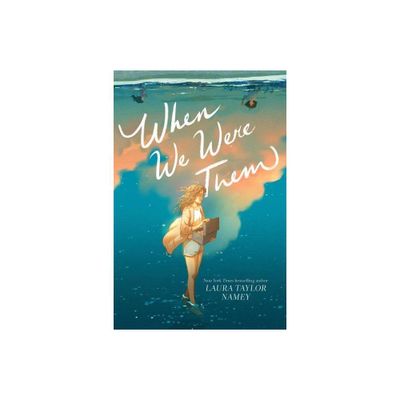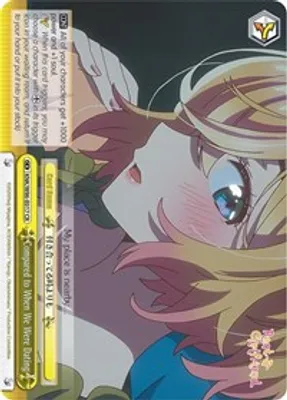Home
When We Were Looking
Loading Inventory...
Barnes and Noble
When We Were Looking
Current price: $17.99


Barnes and Noble
When We Were Looking
Current price: $17.99
Loading Inventory...
Size: CD
*Product Information may vary - to confirm product availability, pricing, and additional information please contact Barnes and Noble
After growing up with music and touring for a few years in a band with her cousin, Maine native
Louisa Stancioff
set out on her own. Moving around the country to places as distant as Alaska and Southern California, she worked odd jobs while building up her guitar skills and writing songs. When she eventually recorded her debut album in Maine with producer/multi-instrumentalist
Sam Kassirer
(
Josh Ritter
,
Lake Street Dive
), the songs she had in hand were steeped in heartbreak and uncertainty. Stylistically, the album,
When We Were Looking
, manifests a merger of alt-country, indie folk, and dreamy psychedelia, all behind a feathery, doleful voice that takes up residence in the clouds. After a count-off,
Stancioff
's airy vocals are introduced with the line "I know you said you're sorry" on "Gold," an ambling, strummed-guitar number with passing washes of synthesizer, echoey piano, and distant guitar. A rhythm section and harmony vocals appear on and off in the second half of the song, which ends in a cappella fashion with the quiet understanding that she gave more than she got in the relationship. That song's light twang, dusty atmosphere, poignant resignation, and cinematic qualities persist throughout an album that leans into psychedelic country-rock territory on the epic, key-shifting "Nobody's Watching" ("You always said you wanted nothing/Now I see you want it all to yourself"), introduces fiddle (by
) on the gloomy, abandonment-themed "Emma," and seems to lift the sultry riffs of
Lou Reed
's "Sweet Jane" (or, more precisely,
Cowboy Junkies
' "Sweet Jane") on "Cigarette," which confronts an ex with, "Heard you've got a new girlfriend/She's really hot/So why are you looking at me like you used to?" With the pastel- instead of gray-tinted "End of Your Song,"
closes the album with a lilting tribute to an ending that has yet to be written, while also announcing the arrival of an artist fully formed. ~ Marcy Donelson
Louisa Stancioff
set out on her own. Moving around the country to places as distant as Alaska and Southern California, she worked odd jobs while building up her guitar skills and writing songs. When she eventually recorded her debut album in Maine with producer/multi-instrumentalist
Sam Kassirer
(
Josh Ritter
,
Lake Street Dive
), the songs she had in hand were steeped in heartbreak and uncertainty. Stylistically, the album,
When We Were Looking
, manifests a merger of alt-country, indie folk, and dreamy psychedelia, all behind a feathery, doleful voice that takes up residence in the clouds. After a count-off,
Stancioff
's airy vocals are introduced with the line "I know you said you're sorry" on "Gold," an ambling, strummed-guitar number with passing washes of synthesizer, echoey piano, and distant guitar. A rhythm section and harmony vocals appear on and off in the second half of the song, which ends in a cappella fashion with the quiet understanding that she gave more than she got in the relationship. That song's light twang, dusty atmosphere, poignant resignation, and cinematic qualities persist throughout an album that leans into psychedelic country-rock territory on the epic, key-shifting "Nobody's Watching" ("You always said you wanted nothing/Now I see you want it all to yourself"), introduces fiddle (by
) on the gloomy, abandonment-themed "Emma," and seems to lift the sultry riffs of
Lou Reed
's "Sweet Jane" (or, more precisely,
Cowboy Junkies
' "Sweet Jane") on "Cigarette," which confronts an ex with, "Heard you've got a new girlfriend/She's really hot/So why are you looking at me like you used to?" With the pastel- instead of gray-tinted "End of Your Song,"
closes the album with a lilting tribute to an ending that has yet to be written, while also announcing the arrival of an artist fully formed. ~ Marcy Donelson


















